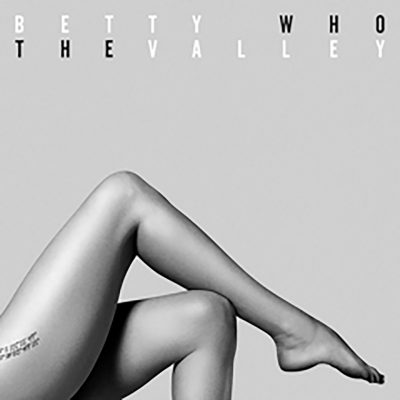
On Friday, Australian singer-songwriter Betty Who released her latest album, “The Valley.” This is her second studio album, and with its well-written lyrics, heartbreak, optimism and romantic spirit, it definitely does not disappoint. Betty Who presents an emotionally compelling, well-written, and well-produced story of a couple that breaks up, only to come back stronger than ever. While this is by no means a perfect album (there are, of course, songs that are not as palatable as others), “The Valley” is both heartbreaking and hopeful in ways that many albums are not.
The album opens up with the bittersweet and slow title track, “The Valley,” which serves as an introduction to the major themes of the album: heartbreak, the aftermath and getting back together and finding happiness.
“You Can Cry Tomorrow” is the upbeat and inspirational third song of the album, and takes a sort of “Hakuna Matata” approach to dealing with a breakup. It urges its listeners to live in the now and push their worries and insecurities to tomorrow and focus on today.
The album’s fourth song, “Mama Say,” is one of the more risqué songs on this album, but nevertheless, it is still enjoyable. There are a few points in the song where there are some odd breathing sounds, but it doesn’t completely ruin the song, as it still has an upbeat rhythm and well-written lyrics.
“Human Touch” is by far the worst song on “The Valley,” but this title is not due to sheer incompetence. Unfortunately, this song suffers from dullness. While the other songs are compelling and unique in their lyrics or composition, this does not suffer from a terrible beat or rhythm, but it lacks in both of these elements.
Rapper Warren G appears in “Free To Fly (feat. Warren G),” a song that celebrates feeling “free” after the end of a relationship. While the opening of this song by Warren G is perfectly fine, his later solo in this otherwise wonderful and upbeat song feels rather intrusive. The particularly slow and unentertaining rap sequence feels unnecessary and doesn’t really contribute to the energetic tone of this song.
The absolute best song on the entire album is “Wanna Be,” which is about wanting to be with someone who is already in a happy relationship. It is simultaneously well-written, well-produced and sung beautifully by Betty Who. She effectively conveys a wide range of emotions, including longing, hurt and jealousy, all the while the song maintains both an optimistic and melancholy tone.
“Reunion” is about wanting to get back together with an ex, and wondering if such a reunion is possible. This song maintains a very optimistic tone, which is reflected in both the rhythm and the lyrics.
YouTube comedians and musicians Superfruit (which consist of Mitch Grassi and Scott Hoying) appear with Betty Who in “Beautiful (feat. Superfruit).” This song is about moving past personal insecurities and finding the beauty within. Unlike in “Free To Fly,” where Warren G seemed out of place in a song like this, Superfruit’s contribution to this song works and enhances the message of “Beautiful.” While this song is not perfect and is not the best song on this album, it is still uplifting and encouraging.
“The Valley” also features Betty Who’s hit 2016 single, “I Love You Always Forever,” which appears last on the album. This is a cover of Donna Lewis’ 1996 song of the same name. It is a wonderful conclusion to a great album, as Betty Who is able to truly capture the joy and contentment of being in a happy and healthy relationship.
Betty Who’s latest album is not perfect, but it’s still wonderfully executed and compelling. The ongoing themes of heartbreak after a breakup, the recovery and coming back together are thoroughly captured through well-written lyrics and (mostly) unique musical composition. Despite its flaws, Betty Who’s “The Valley” offers an authentic and pleasant take on heartbreak and romance, and is therefore well worth listening to.














